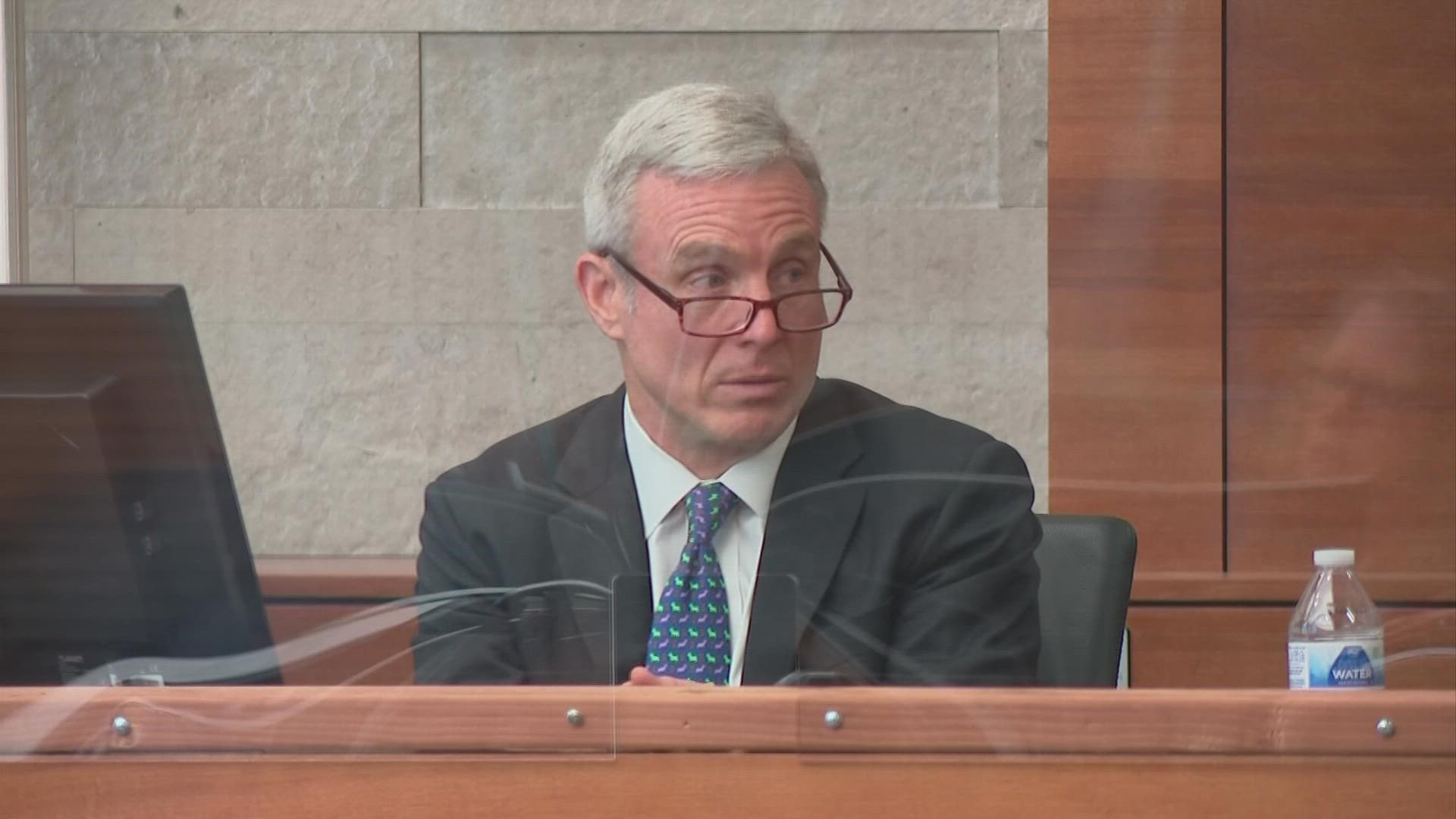COLUMBUS, Ohio — A critical care doctor from Vanderbilt Medical Center in Nashville testified Monday that – in his medical opinion - the fentanyl and sedative doses ordered by Dr. William Husel likely killed his patients – calling them “illegal” “unethical” and “mind-boggling.”
Speaking during the fifth day of testimony in the murder trial of Dr. Husel, Dr. Wesley Ely said the dosages ordered by Dr. William Husel were not medically necessary and likely hastened the deaths of the 14 patients he’s accused of killing.
Husel has pleaded not guilty to murder charges and his legal defense team has said he was performing comfort care for critically ill or dying patients.
But Dr. Ely said these doses – of 500, 1000 or as many as 2,000 micrograms of fentanyl – went beyond what was medically necessary – likening one dose to “driving 250 miles per hour through a school zone” which were “enough to taken down an elephant.”
“It’s mind-boggling to me that anybody would want to do that,” Ely said, serving as a prosecution witness.
During Monday morning’s testimony, prosecutors asked Ely why a physician would give these doses of that amount?
After Husel’s legal defense team objected, Ely responded: “I would believe the intent would be to stop the breathing and hasten death. Cause death.”
Prosecutors spent time going through each of the patient’s medical charts, which were reviewed by Ely.
In each case, Ely said he believed that doses likely hastened the deaths of these patients.
“I think it killed her,” referring to the amount of fentanyl and other drugs received by patient Bonnie Austin.
He made similar remarks about other patients – adding that the combination of opiates like fentanyl and sedatives like midazolam can have a synergistic effect – telling the brain to stop breathing.
During cross-examination Monday afternoon, Husel’s defense team pressed Dr. Ely on his professional affiliations, noting that he is a Catholic, that he’s written journal articles expressing how his faith is involved with his medical practice and that he had received a pro-life award.
Husel’s attorney Diane Menashe – who was still cross-examining Ely after 3 p.m. Monday – asked questions about how much Ely was being paid to testify on behalf of the Franklin County prosecutor’s office. Ely said he had billed the county $10,000 thus far, spent 20 hours reviewing the patient records and was being paid $500 an hour for this time outside court and $750 per hour for in-court testimony.
Ely said he spent many hours reviewing the patient records, but Menashe questioned him on how well he reviewed the records, noting that were it not for the fentanyl in his opinion, he would have no idea when a particular patient's heart stopped or if they stopped breathing first.
Ely said it wouldn’t matter, that both of those would happen near one another. In his view, if the heart stops, the lungs can’t get a much-needed blood supply; conversely, if the lungs stop breathing, the heart would stop receiving oxygenated blood.
Menashe asked Ely if he was aware that he noted one Husel patient was “opioid naïve” when in fact the patient had been on a regimen of opioid medication prior to her death. Ely said he stood corrected.
He was also asked about the contrast between patient treatment and the prosecution’s narrative and his testimony – that Husel’s orders accelerated the deaths and that his testimony was that the doses were illegal. Menashe asked then why would Husel perform 14 life-saving measures for his patient, Joanne Bellisari?
Dr. Ely responded: “That’s fine. But there is nothing in her clinical story” that would build up to (giving her) 1000 micrograms of fentanyl.
This story will be updated.

